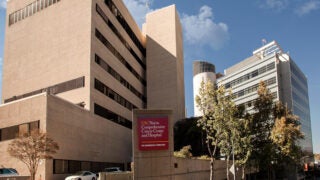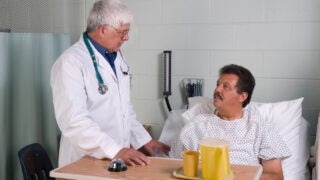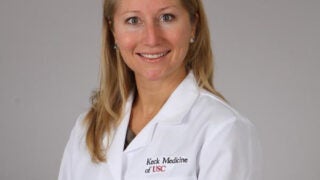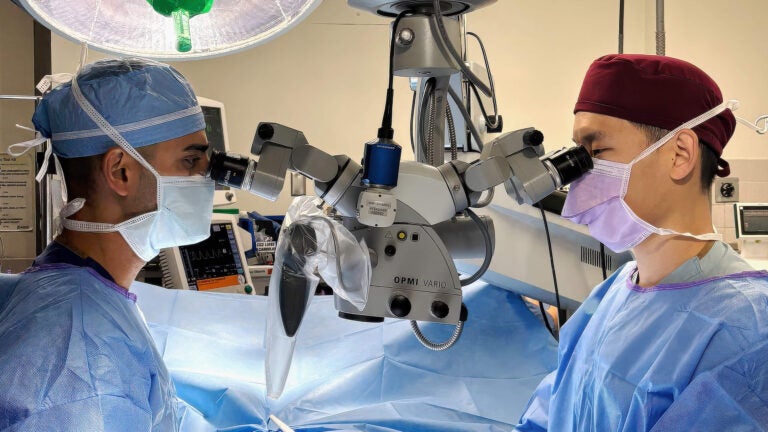
Attending surgeon Kian Asanad, left, trains fourth-year resident Ryan Lee on reproductive microsurgery. (Photo/Kian Asanad)
Quality of life and fertility in male cancer survivorship: A Q&A with USC urologist Kian Asanad
Reproductive urologist and microsurgeon Kian Asanad shares how he keeps quality of life and family top of mind when providing fertility treatment for male cancer patients.
For many cancer patients, future fertility may not be the first concern post-diagnosis. For Southern California native Kian Asanad — director of the USC Fertility and Men’s Sexual Health Center at Keck Medicine of USC and a men’s health urologist specializing in andrology, male infertility and reproductive microsurgery — fertility is a crucial issue that can have a major impact on a patient’s quality of life for years to come.
Asanad knows Keck Medicine patients are in excellent hands: “Our department is complete with world-class experts in the field of urology,” Asanad said. “From complex cancer surgery to robotic surgery, to reconstruction, fertility and other aspects of men’s health, it’s a vast department with over 20 faculty members.”
In this interview with USC News, Asanad, who received his medical degree from UCLA and completed his urology residency at Keck Medicine of USC and Los Angeles General Medical Center before doing a fellowship in andrology and infertility at Northwestern University, shares how he focuses on quality of life and family when engaging with patients during a difficult time of decision-making.
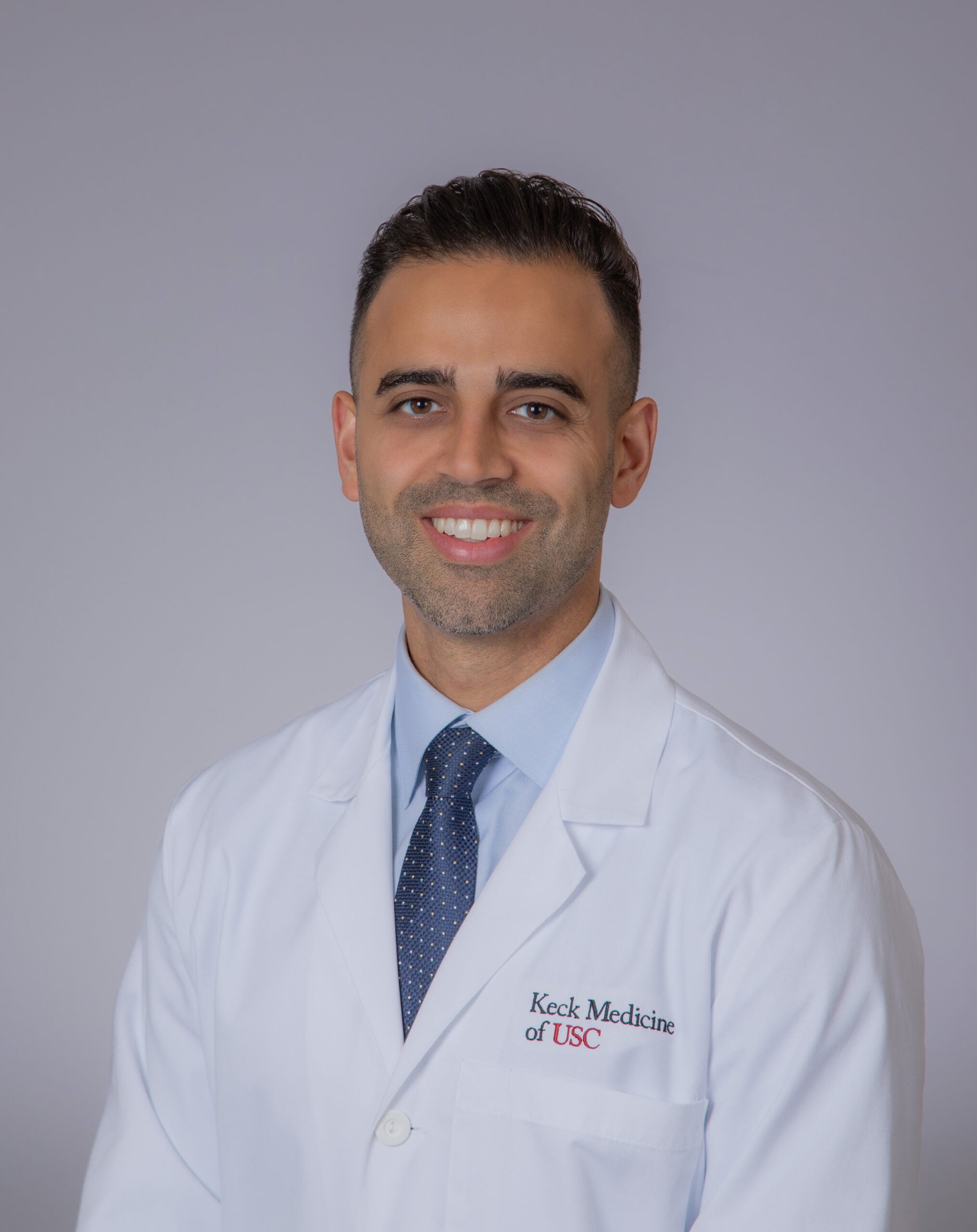
What made you choose urology and men’s health as a specialty?
Asanad: I’ve always been interested in surgeries that improve quality of life. I have found microsurgery and infertility treatment to be incredibly gratifying and rewarding because the surgeries really focus on quality of life and the sensitive aspects of men’s health. Fertility preservation is a well-established treatment consideration in a cancer diagnosis. However, barriers do exist. From a patient standpoint, there may be a lack of financial resources, religious barriers and cultural beliefs. From a physician standpoint, there could be acute clinical issues that oncologists may be more worried about in cancer treatment.
What are the ways that you and your colleagues at Keck Medicine help patients overcome those barriers?
Asanad: We partner with our colleagues at Children’s Hospital Los Angeles, as well as the USC Norris Cancer Hospital and the Adolescent and Young Adult cancer survivorship program. Many times, I see patients after they’ve gone to a sperm bank and are found to be azoospermic (meaning they have no sperm), which is the most severe case. My team and I also support patients after cancer treatment if they have issues with sexual function, testosterone or now want to achieve a pregnancy and build their family or evaluate their fertility.
What are some of the services you offer that set USC apart in men’s health and fertility treatment?
Asanad: At USC, I’ve integrated an ability to perform microsurgical testicular sperm extraction (microTESE) and fertility preservation at Keck Medicine. We did our first case about a year ago, and we’ve done many cases since then. We’ve been able to partner with oncologists and do combination cancer surgery as well as fertility preservation surgery.
How does microsurgical testicular sperm extraction work?
Asanad: When the surgery is done for men with no sperm who have cancer, it’s referred to as a micro-onco-TESE, or microsurgical oncologic testicular sperm extraction. Commonly in urology, you’re dealing with a testicular tumor or testicular cancer. So, men will go to a sperm bank to try to preserve their fertility and find out they have no sperm. At the time of the testicular removal for the cancer, I can open the testicle and use a microscope to look for areas of the testicle that don’t have tumor. If we see sperm, we can harvest those areas and freeze it.
Other cases commonly involve patients with other cancers where maybe it’s not on the testicle but they’re going to be starting chemotherapy and either they can’t ejaculate to give a semen sample to freeze or they’ve tried and have no sperm. I can take these patients to the operating room and perform a micro-onco-TESE to surgically preserve their fertility.
You mentioned that quality of life is one of the main reasons you chose this specialty. How do you keep quality of life front and center when you’re tailoring treatment plans for your patients?
Asanad: Some patients want to be very aggressive about treatment while others want to start slow with oral therapy. My goal is to focus on what the patient’s goals are and how the treatment approach will optimize quality of life in their own world.
You were awarded the USC Choi Family Award for Excellence in Patient-Centered Care, among other awards. What inspires your dedication to your patients?
Asanad: I grew up around health care. I remember being a teen in the waiting room when my dad had life-saving heart surgery, and the surgeon came out to give us good news. There’s nothing more gratifying to me than to now be the person to go to the patient’s family in the waiting room to give them good news from surgery. I always try to just treat patients like they were my own family member, how I’d want them to be treated.

